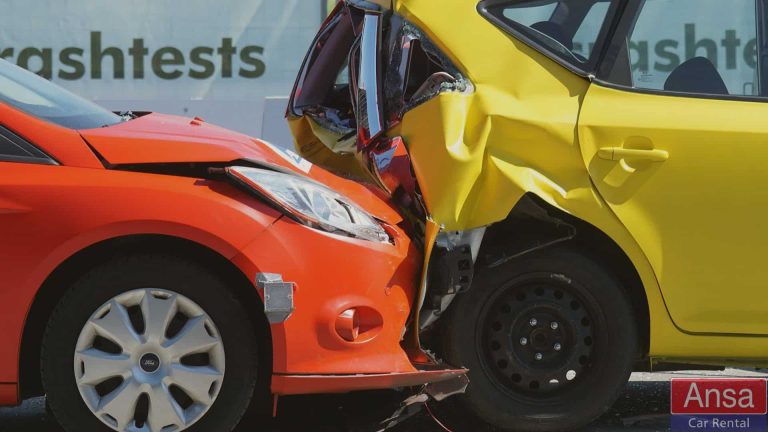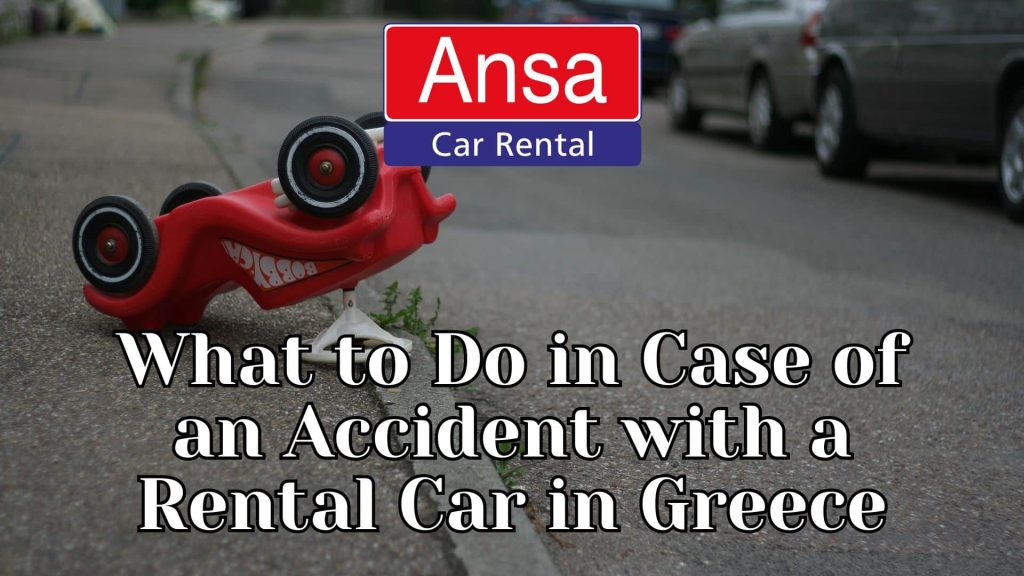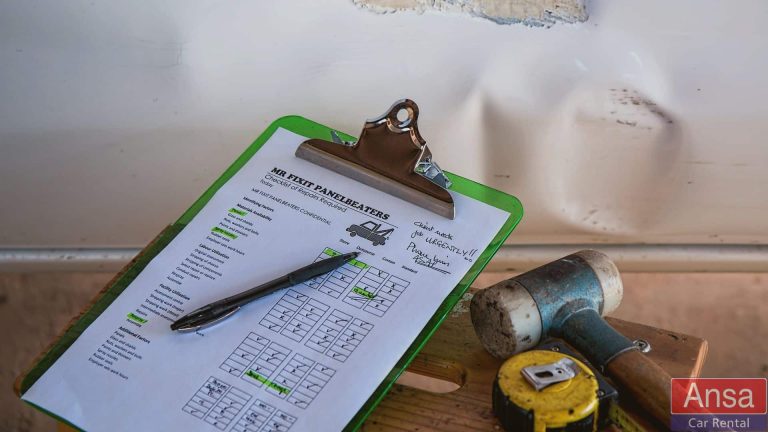Accident with a Rental Car in Greece Guide
If you’re on vacation or a business trip in Crete, Greece, a rental car accident is likely the last thing on your mind. However, being prepared can make a significant difference in handling the situation efficiently. Accidents can happen to anyone, so here’s a comprehensive guide for this unfortunate situation.
Ensure Safety First
- Check for Injuries: Immediately assess yourself and all passengers for injuries. If anyone is hurt, prioritize calling for medical help.
- Turn on Hazard Lights: Make your vehicle visible to other drivers by turning on your hazard lights. Place the car’s warning triangle at a distance of 100m if you are on a highway, 50m if you are in a non-residential area, and 20m if you are in a residential area. Don’t move the vehicle.
- Call Emergency Services: If you have severe injuries or significant damage, immediately contact emergency services. Dial 166 for an ambulance, 100 or 112 for police assistance, and 199 for the fire department.
- Call Insurance Company: Call your insurance company’s call center to announce the accident and inform them about the exact point of the accident. They will send an expert to assist you. The phone number is in the instructions you received from your rental company or in your contract.
Call Emergency Services
- Contact Authorities: Report the accident to local emergency services immediately. Use the appropriate numbers for quick assistance: 166 for medical emergencies, 100 or 112 for police, and 199 for fire emergencies.
- Follow Instructions: Adhere strictly to the instructions given by emergency responders to ensure everyone’s safety and compliance with local laws.

Gather Information
- Exchange Details: Gather the following information from all parties involved:
- Names and contact information
- Driver’s license numbers
- Vehicle registration numbers
- Insurance details
- Document the Scene: Use your phone or a camera to take clear photos of:
- All vehicles involved, and the damage
- The overall scene of the accident, including road conditions and traffic signs
- Any visible injuries
- Collect Witness Information: If there are any witnesses, politely ask for their contact information and a brief statement about what they saw. This can be crucial for insurance claims and legal matters.
Contact the Rental Car Company
- Report the Incident: As soon as you have ensured everyone’s safety and contacted emergency services, call the rental car company. Use the emergency contact number in your rental agreement or their website.
- Follow Procedures: The rental company will guide you through their specific process, which may include:
- Arranging for towing and repairs
- Providing a replacement vehicle if necessary
- Filing reports and paperwork required by the company
File a Police Report
- File a Report: Insist on filing a police report at the scene, especially if there are injuries, significant damage, or disputes about the incident. This report is essential for insurance claims and potential legal issues. Caution: No police will arrive without severe injuries or significant damage. Your insurance expert will fill this report.
- Obtain a Copy: Request a copy of the police report. Keep this for your records and provide a copy to the rental car company and your insurance provider.
Contact Your Insurance Company
- Report the Accident: Notify your car insurance company about the accident immediately. Prompt reporting helps avoid claim denials.
- Provide Detailed Information: Be ready to share:
- A copy of the police report
- Photos of the accident scene and damages
- Contact information and insurance details of other parties involved
- Any documentation or instructions from the rental car company
- Understand Your Coverage: Confirm whether your policy includes collision and comprehensive coverage. This protects the rental car in addition to the legally required liability coverage.
- Know Your Deductible: Be aware of your policy’s deductible—the amount you pay out of pocket before your insurance covers the remaining costs.
- Additional Insurance: If you purchased extra insurance from the rental company or your credit card, review these policies to understand their terms and coverage limits.
Follow Up
- Stay Informed: Communicate regularly with the rental company and your insurance provider. This will help you stay updated on the status of your claims, any additional information or documents required, and the next steps in the process.
- Coordinate Repairs and Return: Follow the rental company’s instructions on arranging for vehicle repairs if you are responsible for doing so, the process for returning the vehicle once repairs are completed or if a replacement vehicle is provided, and any associated costs or fees.
Book Your Car Here!
Explore Greece Today!
Tips for Avoiding Accidents
- Stay Alert: Always remain attentive and avoid distractions such as mobile phones, eating, or adjusting the radio while driving.
- Follow Traffic Laws: Adhere strictly to local traffic regulations and speed limits. Familiarize yourself with Greek traffic laws if driving in Greece for the first time.
- Use GPS: Utilize a GPS to navigate unfamiliar roads safely and prevent abrupt, unsafe maneuvers.
- No Alcohol: Never drive under the influence of alcohol. It severely impairs your driving abilities and can lead to severe accidents, legal consequences, hefty fines, and imprisonment.
- No Mobile Phones: Do not use mobile phones while driving. Distracted driving is a leading cause of accidents. Use hands-free options if you must make a call, or better yet, pull over safely.
Additional Steps to Take in Case of an Accident
- Contact Breakdown Assistance
- Call for Help: Immediately contact the breakdown assistance number provided by your rental company. Ensure your vehicle is secure before leaving it.
- Complete Necessary Forms: Read and sign the accident form your insurance expert will provide you. It must document the incident accurately.
Emergency Services Contact Numbers
- Police: 100
- Ambulance: 166
- Fire: 199
- Forest Fire: 1591
- Coast Guard: 108
- Counter-Narcotics: 109
- Tourist Police: 171
- Social Aid: 197
- General Emergency: 112 (free from any mobile or landline, connects you to local services)
Conclusion
Dealing with an accident while driving a rental car in Greece can be stressful, but being prepared and knowing the steps to take can make a significant difference. By following this comprehensive guide, you can ensure everyone’s safety, handle the situation efficiently, and confidently navigate the aftermath. Remember, the key is to stay calm, gather all necessary information, and communicate promptly with emergency services, the rental car company, and your insurance provider.
At Ansa.gr, we aim to make your car rental experience as smooth and worry-free as possible. Our comprehensive insurance options are designed to provide peace of mind, allowing you to focus on enjoying your trip. Safe travels!

